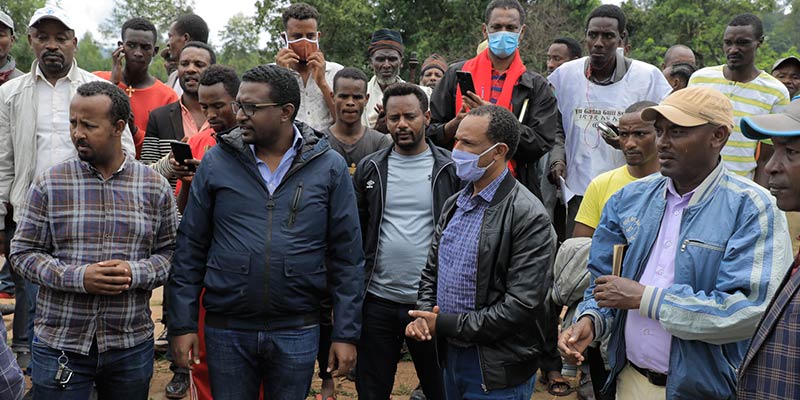
Access to clean water
Access to clean water in most rural areas of Ethiopia, the local communities do not have access to clean water. They often have to travel long distances to fetch water from rivers, reservoirs and springs, sharing with livestock and wild animals. This is mainly done by women and children. Since such waters are often polluted, water-born diseases are very common. In coffee growing areas, the problem of pollution is even worse. Because, waste from coffee processing (washed coffee) is the major cause of pollution for surface water like rivers and small streams. Hence, there is high prevalence of water-born disease in coffee growing areas than other rural areas of the country. Developing deep wells to supply clean water to coffee farming communities has been identified as top priority intervention.
Access to electric power supply
Access to electric power supply in most rural areas, people use wood fuel for both heat/cooking and light. This has negative impacts on human health, economy and the environment. Electricity in Ethiopia is mainly from hydropower, and hence it is clean and renewable. Using electricity reduces health problems associated with smoke from burning biomass. It also enables students to study and do homeworks at night, and parents to access media to better access market information and trends of development in their country as well as around the world, which indirecly influences their economy positively. Further, shift to clean energy reduces deforestation and has positive impacts on the environment. But, most coffee farming communities do not have the capacity cover the cost required to connect the national grid.
Rural road construction
Rural road construction rural roads are vital to access market and public service facilities like health centers and schools. The government is agressively construction access roads in rural areas, through its Universal Rural Access Road Program (URAP). But, it has not reached all corners, espcially many remote coffee growing communities. Construction of rural access road is among the top priority problems for coffee farming communities. This is also vital for the coffee business, since it opens access to get quality and unique produced in remote areas.
Primary Schools construction
Primary Schools construction access to primary education is also among the top priority problems. Because, children can not travel long distances to attend at schools located far away from home. On the other hand, individuals that have finished primary education are expected to be motivated to continue secondary school education and beyond, even if secondary schools are far away. Hence, it is vital build primary schools in major rural villages that do not have schools.
Health clinics
Health clinics Human health clinics are mainly located in uran areas. Rural communities have lack of access to health care facilities. Given health problems associated with pollution and water born diseases, this is also the major priority for many coffee farming communities.
Our Works

Access to clean water
Access to clean water in most rural areas of Ethiopia, the local communities do not have access to clean water.

Electric power supply
Access to electric power supply in most rural areas, people use wood fuel for both heat/cooking and light.

Rural road construction
Rural roads are vital to access market and public service facilities like health centers and schools.

Primary schools construction
Primary Schools construction access to primary education is also among the top priority problems.
Become Volunteer
Spread the awareness of helping people, so that they can live a normal life in the society and educate their children that everyone deserves.
Join Now